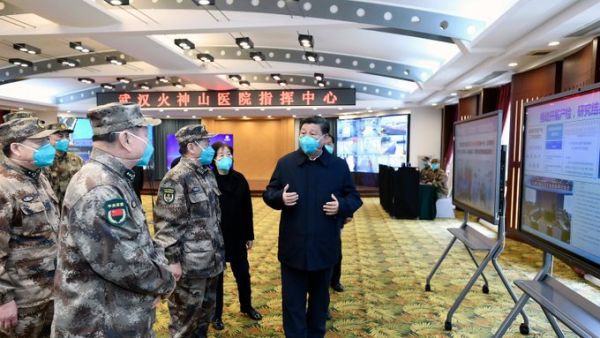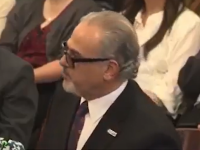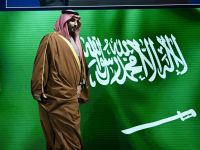Chinese President Xi Jinping has visited Wuhan for the first time since the city emerged as the centre of the coronavirus epidemic in January - a major sign that Beijing believes the outbreak is under control.
The timing of Xi's visit indicates that China is ready to declare victory over the health crisis, which has killed at least 3,136 people in the nation and 4,062 worldwide, according to experts.
Xi today inspected a 1,000-bed hospital constructed in 10 days to fight the deadly disease before touring a local community to call on residents in quarantine.
His visit came as Wuhan authorities have closed all of the city's 14 makeshift 'fang cang' hospitals - which were converted from sports halls and exhibition centres - after they treated some 12,000 patients.
It also came as unprecedented quarantine measures that have sealed off the city of 11 million and the rest of central Hubei province since late January appear to have paid off, with new infections dropping dramatically in recent weeks.
China's progress stands in stark contrast with the growing global crisis, with cases now growing at a faster pace abroad, and Italy enacting its nationwide lockdown.
More than 100 countries are now fighting the contagion, which has infected over 114,400 people globally.
A video released by China's state broadcaster CCTV shows Xi, who arrived by plane in Hubei's capital, wearing a mask as he spoke via video-link to front-line medical workers and patients in Huoshenshan or Fire God Mountain Hospital.
Huoshenshan started treating patients from February 4 after being built from the ground in just 10 days to combat the fast-spreading infection.
Its sister facility, Leishenshan or Thunder God Mountain Hospital, was completed in 12 days.
Xi then went to Wuhan's Donghu New City community at noon to visit people in quarantine and community workers, CCTV said.
Another clip shows the locals waiving at Xi from their balconies and a mask-donning Xi greeting them back while walking in the neighbourhood.
Xi is also filmed talking to community volunteers in charge of distributing necessities and carrying out health campaigns.
Xi's neighbourhood tour came just five days after China's Vice Premier Sun Chunlan was heckled during an inspection by the city's isolated residents who reportedly complained about being neglected.
A video shows the locals chanting 'fake, fake' out of their windows as they allegedly claimed that Sun was being shown a 'fake' delivery of food.
China's most powerful leader since Mao Zedong is usually a daily fixture in state media but has stayed out of the spotlight for much of the crisis and assigned Premier Li Keqiang to oversee the response to the epidemic.
Li and Vice Premier Sun have already visited the virus-stricken city of Wuhan.
But as the number of new cases has fallen in recent weeks, state media has played up Xi's role in the fight against the outbreak, releasing a speech last month in which he said he had been giving instructions since early January.
Hua Po, an independent Beijing-based political analyst, told AFP the trip's timing indicated an 'interim victory' for China.
'His visit is to signal that the outbreak has been effectively curbed, and is an attempt to quieten external criticism of him not going to the front lines,' said Hao.
China state newspaper has urged its people to strive towards the 'victory of a people's war' against the epidemic.
People's Daily, the mouthpiece of the nation's Communist Party, said in a commentary today: 'At the moment, the control and prevention efforts against the disease are moving in a positive and good direction nationwide. The resumption of economic and social development is accelerating.
'At the same time, the epidemic situation in the province of Hubei and the city of Wuhan, in particular, is still complex and severe. And one should not neglect a possible rebound of the epidemic in other areas.
'At this time in particular, [we] should enhance the party's leadership comprehensively and work around the people to boost the people's power for seizing the victory of the people's war in controlling the epidemic.'
Authorities have faced rare and fierce criticism online over their handling of the virus, with local officials coming under particular scrutiny for punishing whistle-blowers in an apparent attempt to cover up the outbreak in early January.
'During the worst of the outbreak, Xi avoided the epicentre because he did not want to be blamed, but when the situation gets better, he shows up in order to receive praise,' said Bruce Lui, a senior lecturer in journalism at Hong Kong Baptist University.
The death of doctor Li Wenliang, who died from the COVID-19 illness in February, sparked a wave of grief and anger online. He was among a group of people who had raised the alarm as early as December.
The virus is believed to have emerged in December at a market that sold wild animals in Wuhan before ballooning into a national and then a global epidemic.
More than 4,000 people have died and over 110,000 have been infected worldwide, with the majority in China.
But China reported only 17 new cases in Wuhan on Tuesday, the lowest figure since it started publishing data on January 21, and two elsewhere that were imported from abroad.
'Xi doesn't want to be associated with the disaster, but with the recovery,' said Adam Ni, a researcher at the China Policy Centre in Canberra.
'China has turned the corner now with COVID-19, and the party now wants to craft the most positive narrative despite early missteps.'
Hua, the Chinese analyst, said the main reason for Xi's visit is because the outbreak has put tremendous pressure on the world's second-largest economy and needs to get back to work.
'Xi wants to uplift people, and his visit suggests a gradual return to normal life and work,' Hua said.
With 56 million locked down in Hubei, authorities are now considering the possibility of lifting travel restrictions in low-risk areas to prepare for resuming work and manufacturing, state media reported on Tuesday.








